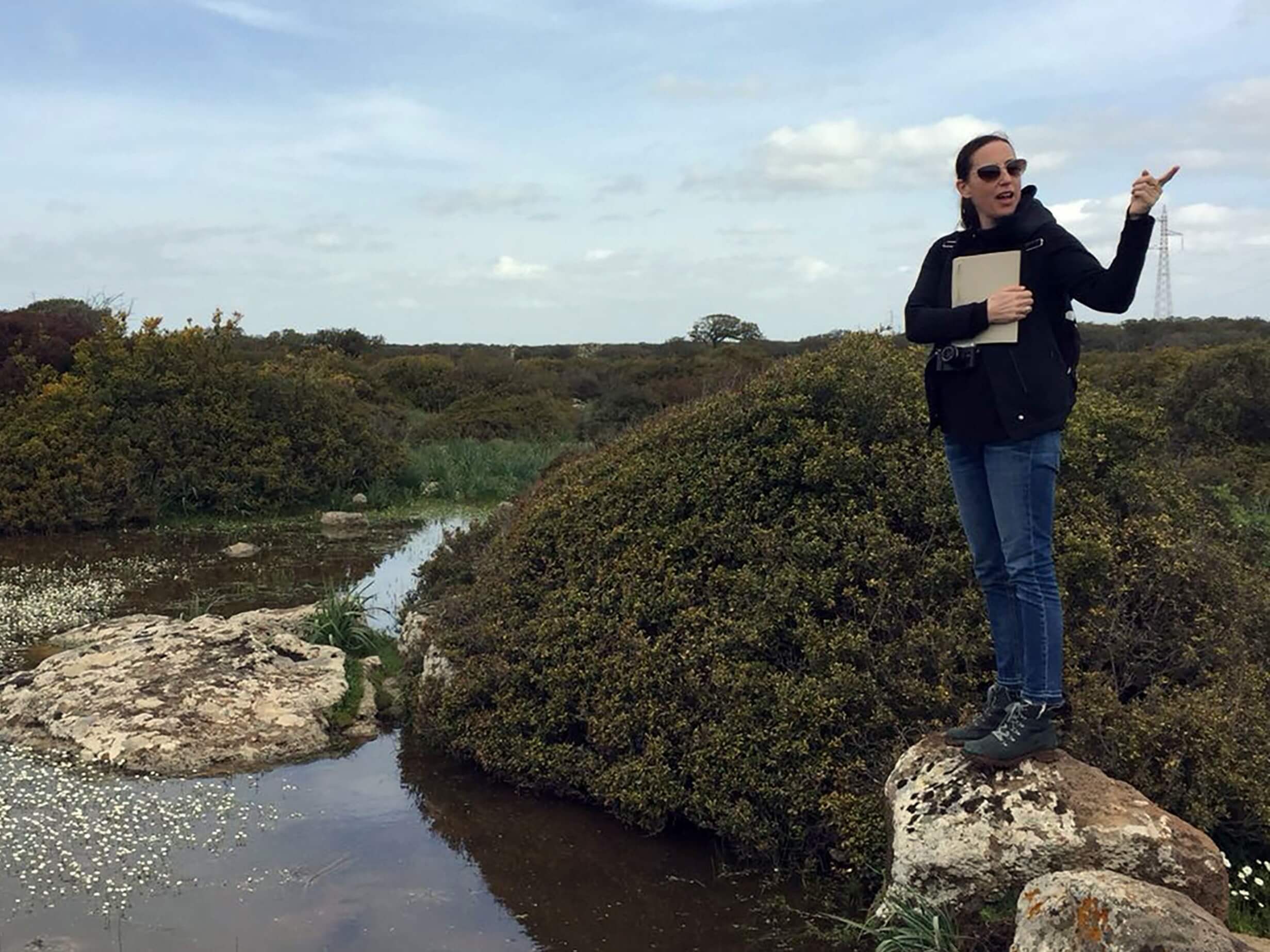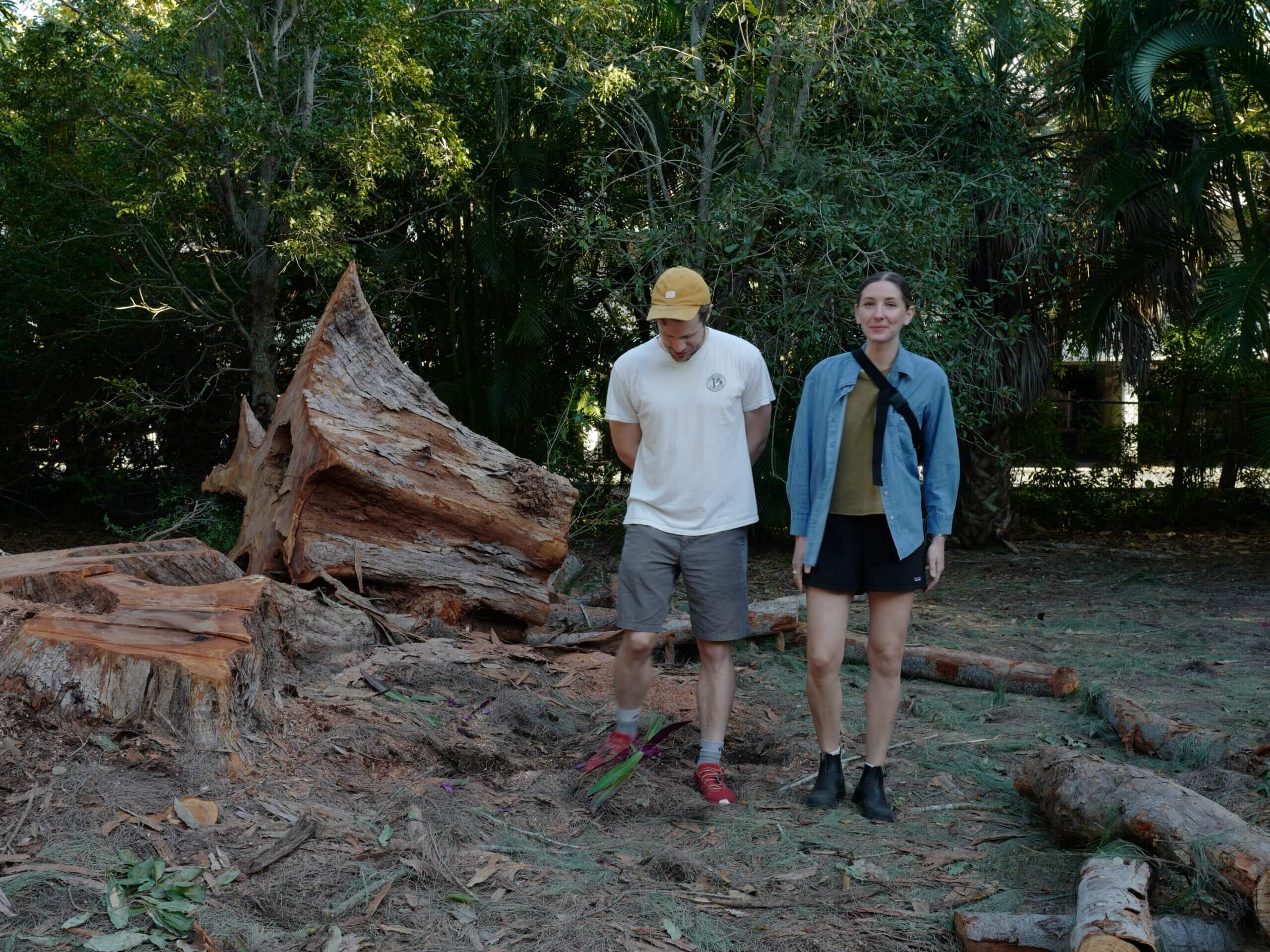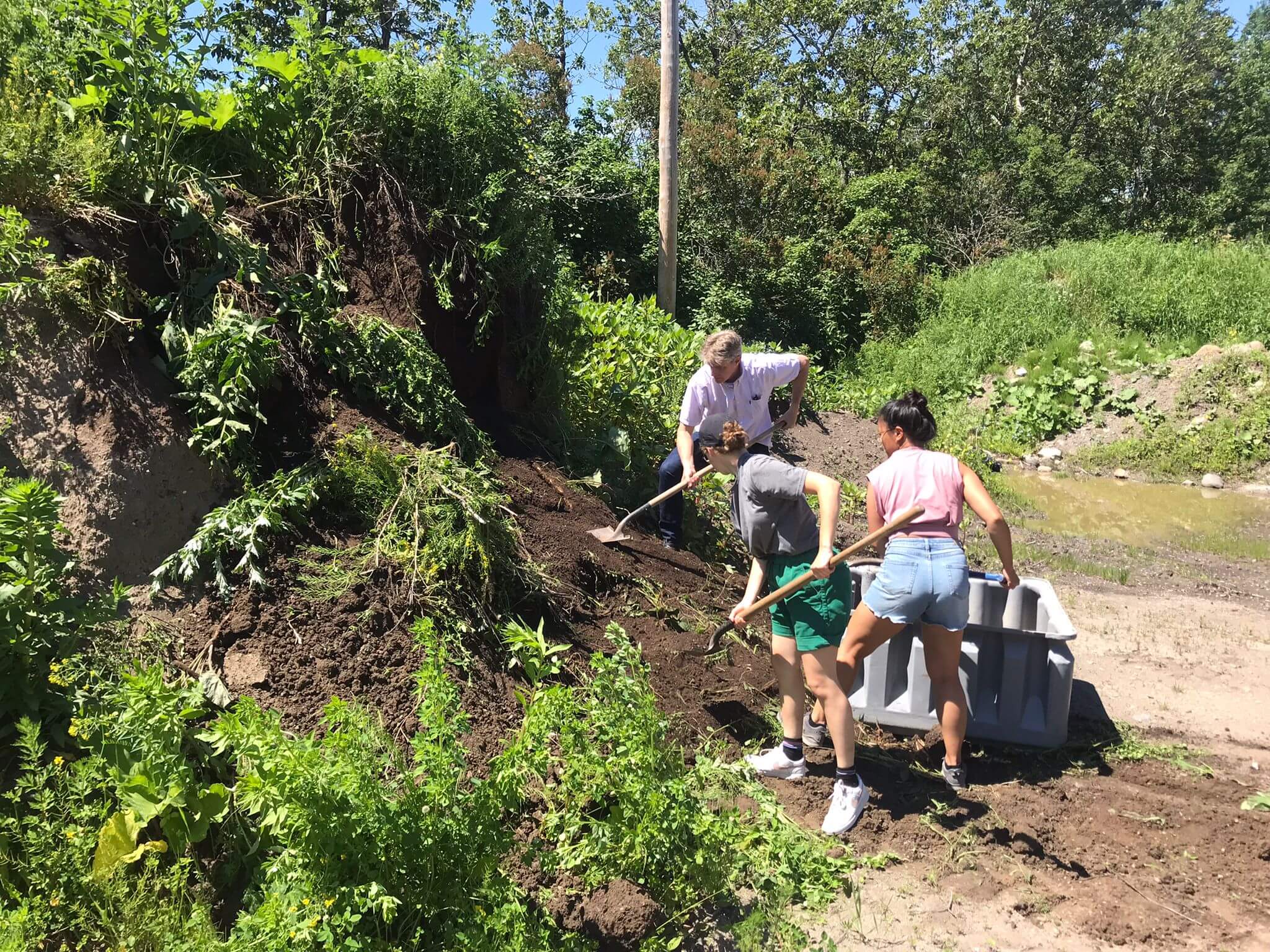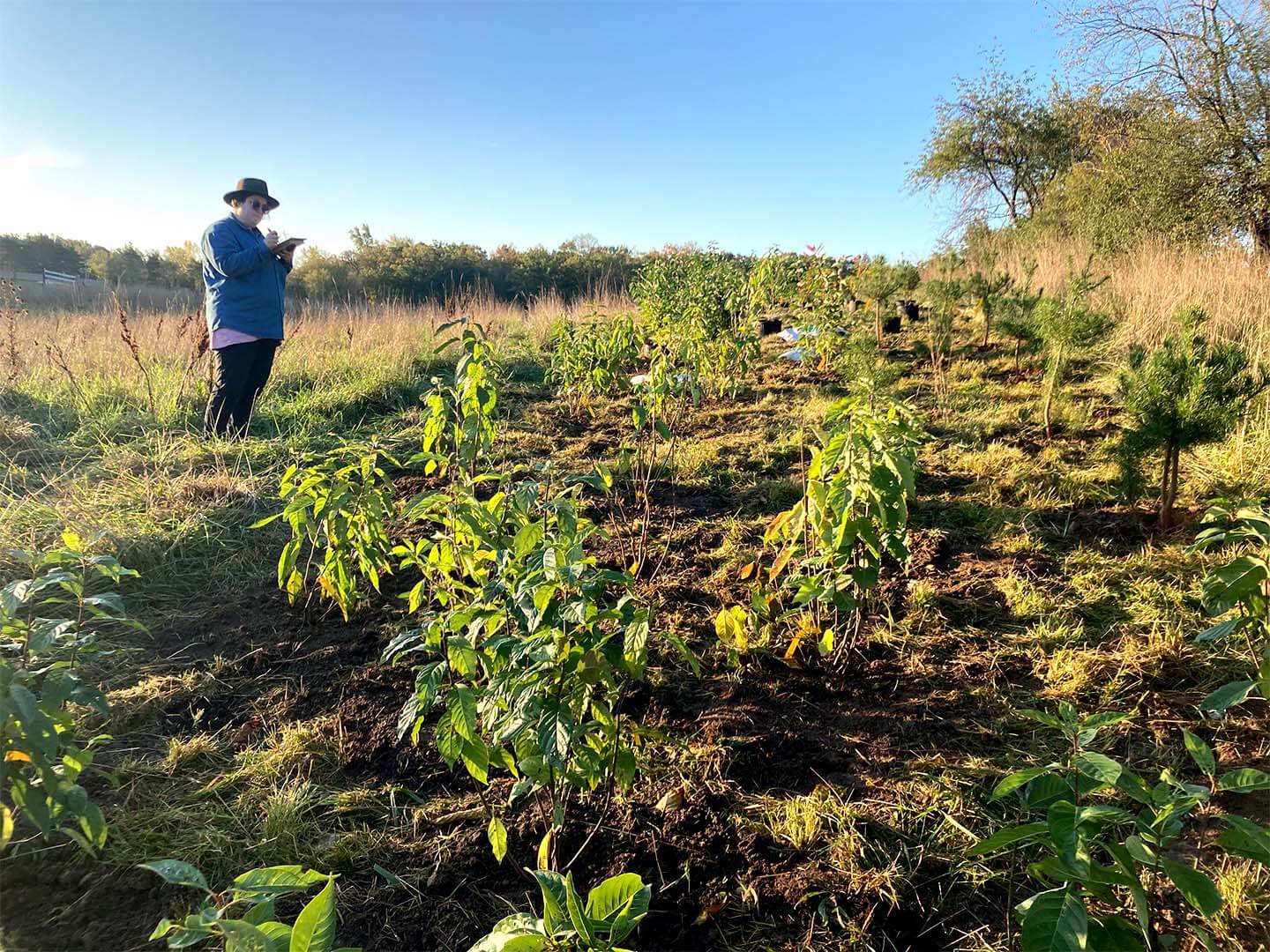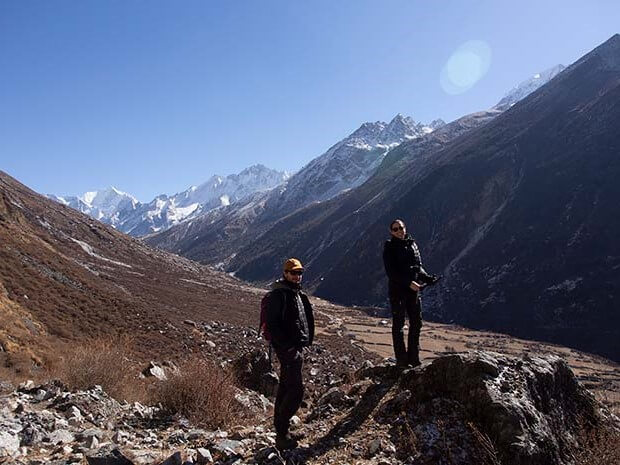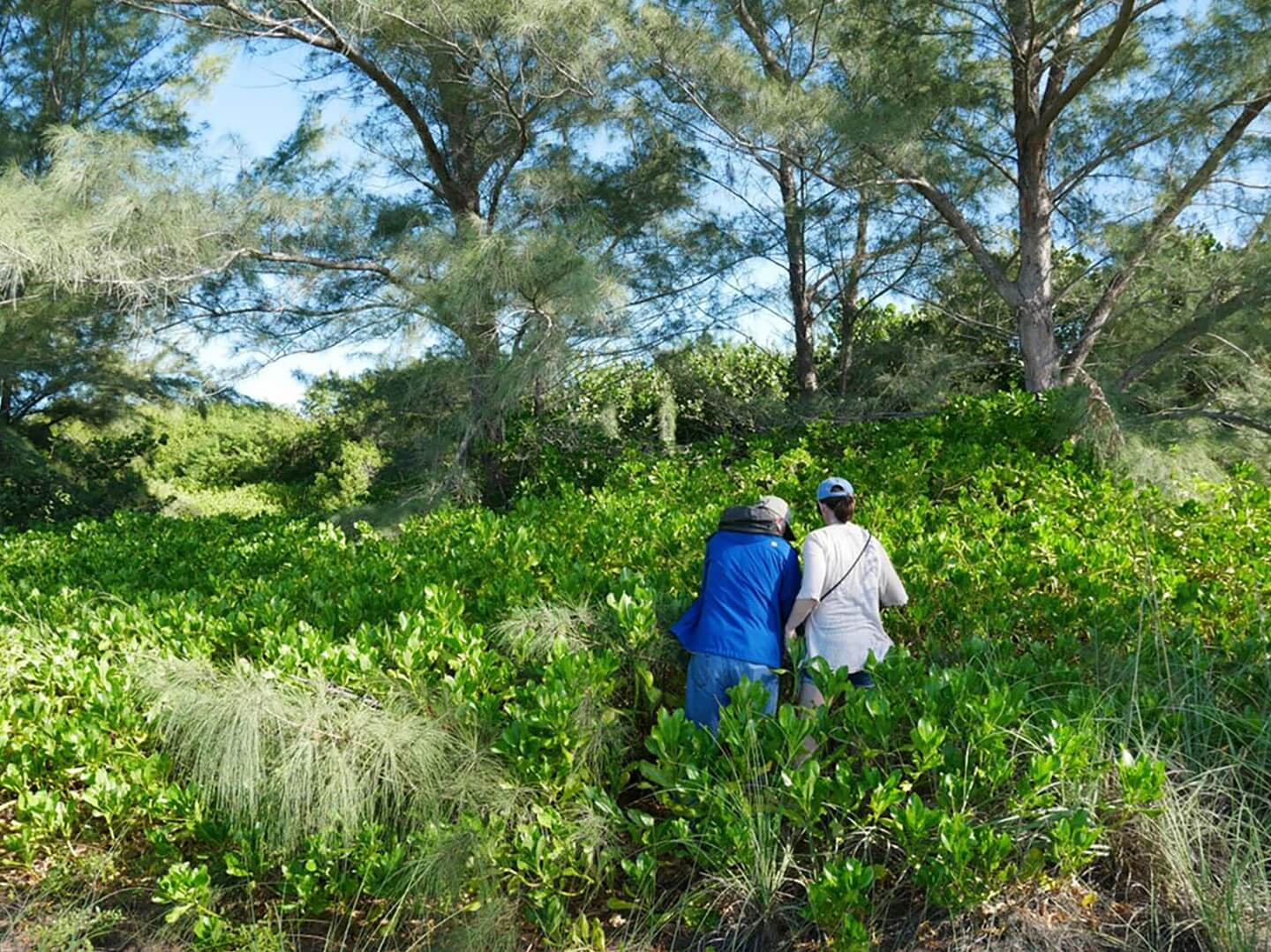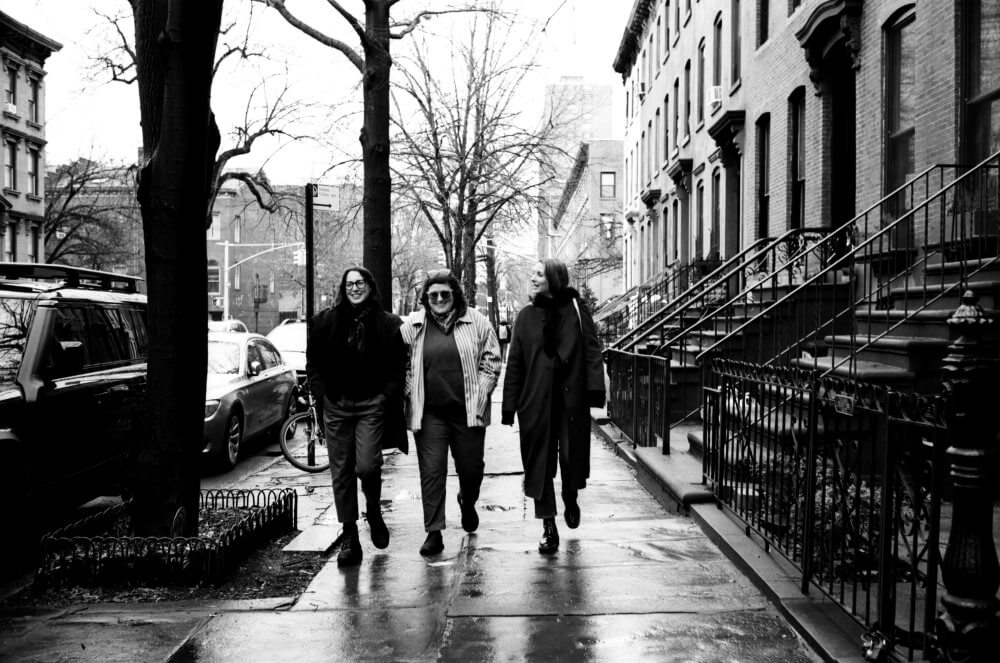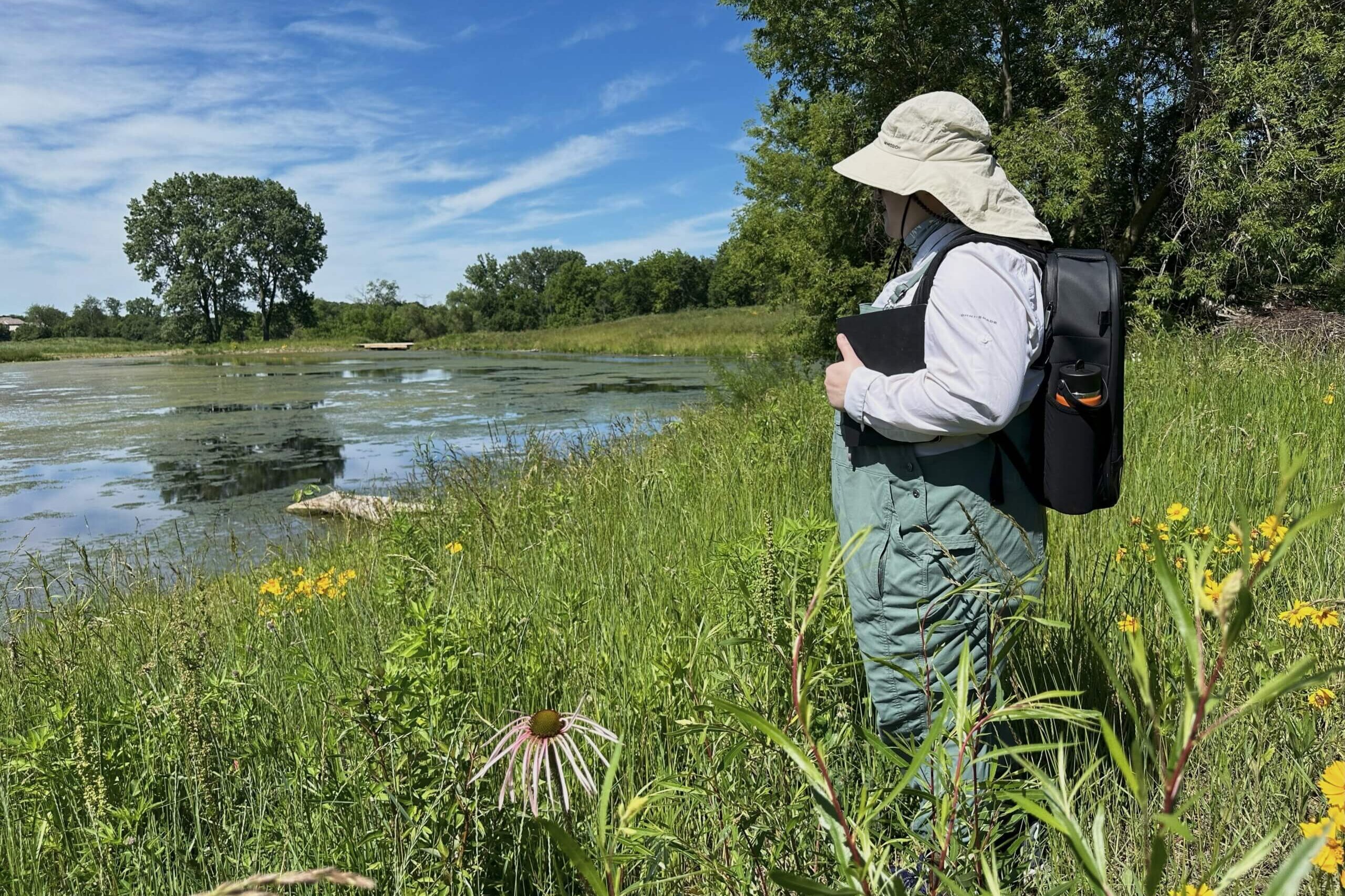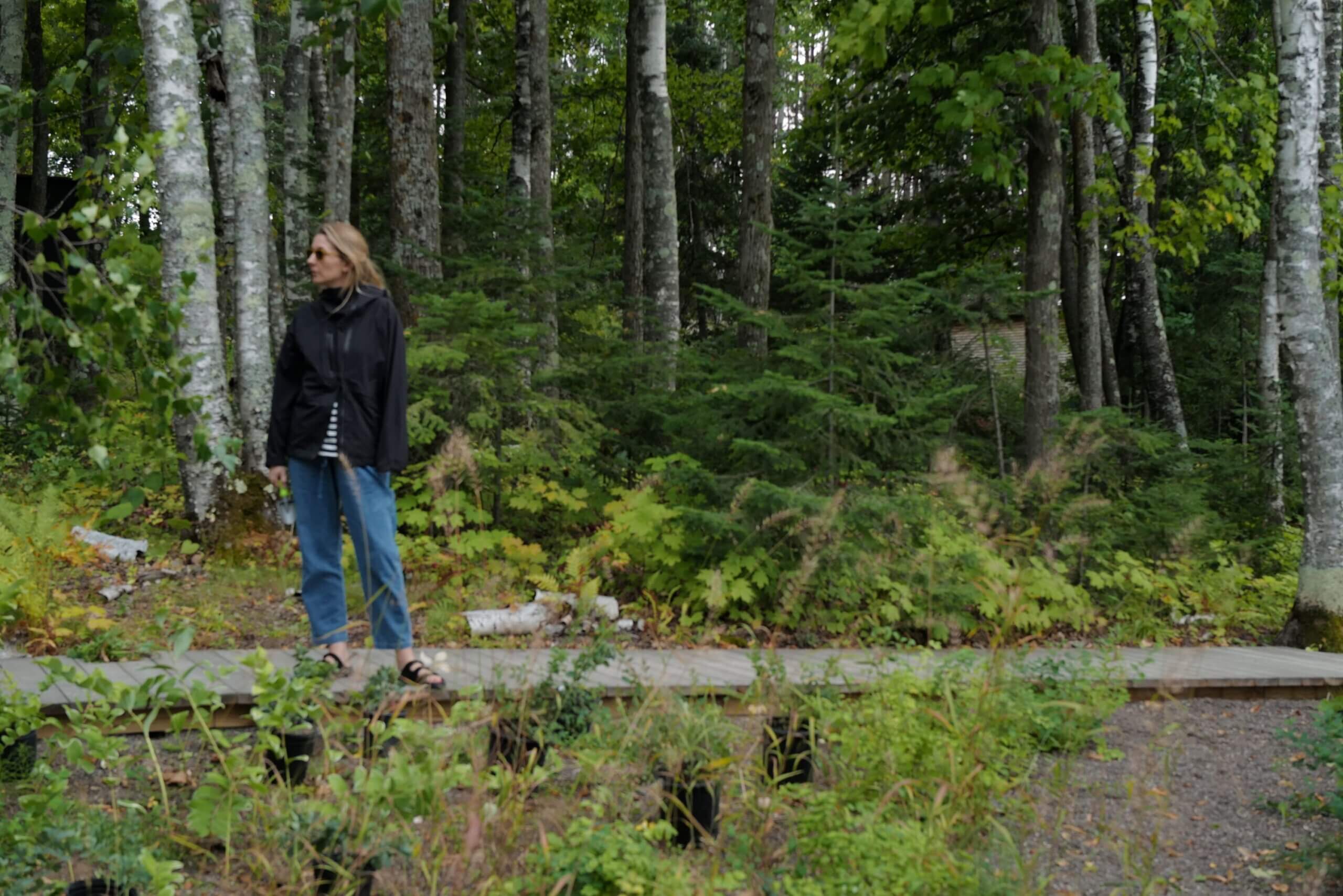About
About
Practice Landscape works with the living environment as designers, researchers, and gardeners. We believe that landscape is a process not a product, and that the most meaningful landscapes emerge from a strategy of working with plants first. Our work encompasses a range of scales and landscape types, from regional landscape adaptations to large public parks, to intimate gardens and private landscapes. Landscape gardening is a kind of applied research that deserves notice because adaptation is informed not just by cultural desire but by the novel ecology of the land itself. Practice Landscape was started in 2006 by Rosetta S. Elkin and has prioritized garden-making, public exhibition, open access publishing, and horticultural research for nearly two decades. Practice Landscape is a registered Women Business Enterprise (WBE) in the state of Massachusetts.
Working with us
We are open to new projects and collaborations, large and small. We collaborate with clients who share a deep respect for the land and a commitment to ethical land management. We relish working with people and institutions across a spectrum of disciplines and scales and take seriously the role of collaborator.
New projects and inquiries please contact: hello@practicelandscape.com
We are open to new projects and collaborations, large and small. We collaborate with clients who share a deep respect for the land and a commitment to ethical land management. We relish working with people and institutions across a spectrum of disciplines and scales and take seriously the role of collaborator.
New projects and inquiries please contact: hello@practicelandscape.com
We are open to new projects and collaborations, large and small. We collaborate with clients who share a deep respect for the land and a commitment to ethical land management. We relish working with people and institutions across a spectrum of disciplines and scales and take seriously the role of collaborator.
New projects and inquiries please contact: hello@practicelandscape.com
We are open to new projects and collaborations, large and small. We collaborate with clients who share a deep respect for the land and a commitment to ethical land management. We relish working with people and institutions across a spectrum of disciplines and scales and take seriously the role of collaborator.
New projects and inquiries please contact: hello@practicelandscape.com
Rosetta S. Elkin, MLA, FAAR, PHD
Rosetta is a landscape architect dedicated to expanding the relationship between people and plants. She is the Principle of Practice Landscape, academic director of Pratt Institute’s School of Architecture Master’s in Landscape Architecture (MLA) program, and an Associate of The Arnold Arboretum at Harvard University. Rosetta’s work considers living environments with a particular focus on plant life and climate change. Rosetta teaches planting design, fieldwork, and seminars that advance a theory of plant life between ecology and horticulture. In her work, Rosetta engenders access to plant knowledge by prioritizing public exhibitions, living installations, maintenance plans and open access publishing. Among her awards, Rosetta is the recipient of the 2018 Garden Club of America Rome Prize in landscape architecture, The Harvard University Climate Change Award, and has received support ranging from The Graham Foundation for the Arts to the Rockefeller Foundation.
She is author and co-author of books, articles, book chapters, and monographs including Plant Life: The Entangled Politics of Afforestation (University of Minnesota 2022), how afforestation reveals the often-concealed politics between humans and plants. Landscapes of Retreat (K.Verlag 2023), portraits of climate adaptation. Tiny Taxonomy (Actar 2017), a publication that reflects on the scale of individual plants in practice through a reading of three gardens.
Her design work is exhibited at the Victoria and Albert Museum, Les Jardins de Metis, Chelsea Garden Festival, and the Isabella Stewart Gardner Museum, and featured in a range of publications including Journal of Landscape Architecture, New Geographies, and Lotus International. She is committed to design as a means to address the risk, injustice, and instability brought about by the shifts in our shared climate and welcomes projects that heighten the awareness of plant life.
Rosetta is currently starting a new program in landscape architecture at Pratt Institute where she also teaches landscape studies and fieldwork courses. For more information please visit her faculty page.
Rosetta S. Elkin, MLA, FAAR, PHD
Rosetta is a landscape architect dedicated to expanding the relationship between people and plants. She is the Principle of Practice Landscape, academic director of Pratt Institute’s School of Architecture Master’s in Landscape Architecture (MLA) program, and an Associate of The Arnold Arboretum at Harvard University. Rosetta’s work considers living environments with a particular focus on plant life and climate change. Rosetta teaches planting design, fieldwork, and seminars that advance a theory of plant life between ecology and horticulture. In her work, Rosetta engenders access to plant knowledge by prioritizing public exhibitions, living installations, maintenance plans and open access publishing. Among her awards, Rosetta is the recipient of the 2018 Garden Club of America Rome Prize in landscape architecture, The Harvard University Climate Change Award, and has received support ranging from The Graham Foundation for the Arts to the Rockefeller Foundation.
She is author and co-author of books, articles, book chapters, and monographs including Plant Life: The Entangled Politics of Afforestation (University of Minnesota 2022), how afforestation reveals the often-concealed politics between humans and plants. Landscapes of Retreat (K.Verlag 2023), portraits of climate adaptation. Tiny Taxonomy (Actar 2017), a publication that reflects on the scale of individual plants in practice through a reading of three gardens.
Her design work is exhibited at the Victoria and Albert Museum, Les Jardins de Metis, Chelsea Garden Festival, and the Isabella Stewart Gardner Museum, and featured in a range of publications including Journal of Landscape Architecture, New Geographies, and Lotus International. She is committed to design as a means to address the risk, injustice, and instability brought about by the shifts in our shared climate and welcomes projects that heighten the awareness of plant life.
Rosetta is currently starting a new program in landscape architecture at Pratt Institute where she also teaches landscape studies and fieldwork courses. For more information please visit her faculty page.
Emily Hicks, MLA
Emily Hicks is a Partner at Practice Landscape. Her work explores how historic and contemporary land management practices both create and limit the landscape. Currently, Emily is managing an ecological assessment and management plan for a community in northern Minnesota. The work prioritizes archival research, drone data collection and analysis, and local partnership to support a stewardship plan. She was the Project Manager for the Robert Rauschenberg Foundation Captiva Campus landscape adaptation, and Le Jardin de bord de mer in Ste-Flavie, Québec. Emily is the recipient of the Landscape Architecture Thesis Prize at Harvard Graduate School of Design for her co-authored thesis “Wild Rice Waters." An article expanding on the subject was published in Places Journal.
Emily is also the President and co-founder of the nonprofit Practice Foundation. For more information about the mission and work please visit the Practice Grant page.
Sarah Diamond, MLA
Sarah Diamond is a Project Manager at Practice Landscape. Her work examines the intersection of representation, memory, and maintenance in landscape practice and discourse. Currently, Sarah manages the landscape strategy and long-term landscape design of a post-agricultural site in Lake County, Illinois. This project includes close collaboration with hydrologists and ecologists as the highly disturbed site is analyzed and, over time, with the adaptation of maintenance practices, woodlands, meadowlands, and forestlands succeed agricultural fields. Sarah a Landscape Architecture Foundation Olmsted Scholar from the Harvard Graduate School of Design, a former co-chair of Womxn in Design, and co-organizer of the 2018 Convergence at the Confluence of Power, Identity & Design. She continues her longstanding art practice, working in oil to reconcile the spatial and the imagined.
Joanna Lombard, AIA, LEED AP
Joanna Lombard is a registered architect (Florida) and Professor at the University of Miami School of Architecture with a joint appointment in the Department of Public Health Sciences at the Miller School of Medicine. Her scholarship explores the influence of the cultural landscape on living environments with focus on climate migration and managed retreat in relation to the transformation of South Florida. An Abess Faculty Scholar in the Leonard and Jayne Abess Center for Ecosystem Science and Policy, she is a founding member of the Built-Environment Behavior & Health Research Group with funded projects in the area of neighborhood design and health, currently studying the impacts of streetscape-greening on Miami-Dade Medicare beneficiaries. She is author and co-author of articles, book chapters, and publications that address a public awareness of the cultural landscape, using historical studies to inform the future. She is co-leader of one of the eleven university-based teams selected as charter members of the American Institute of Architects Design & Health Research Consortium, and a member of the University of Miami U-LINK team exploring “Hyper-localism: Transforming the Paradigm for Climate Adaptation.” Joanna enjoys working with other universities and scholars to shape policy and influence the public realm. In this capacity she has worked recently with colleagues at Georgetown University, The CLEO/Van Alen Institute Climate Design Lab, and The Nature Conservancy, and currently with the HyLo team is working with community partners at Catalyst Miami and CLEO.
For more about Joanna please visit her faculty page
Collaborators past and present:
Tim Nottage, Catherine Auger, Daniella Slowik, Marissa Angell (MLA/registered landscape architect), Dane Carlson (MLA), Juna Pfeifer, Emily Beach, Elena Thoman, Melissa Eloshway, Gracie Villa, Dana Hills, Parawee Wachirabuntoon.
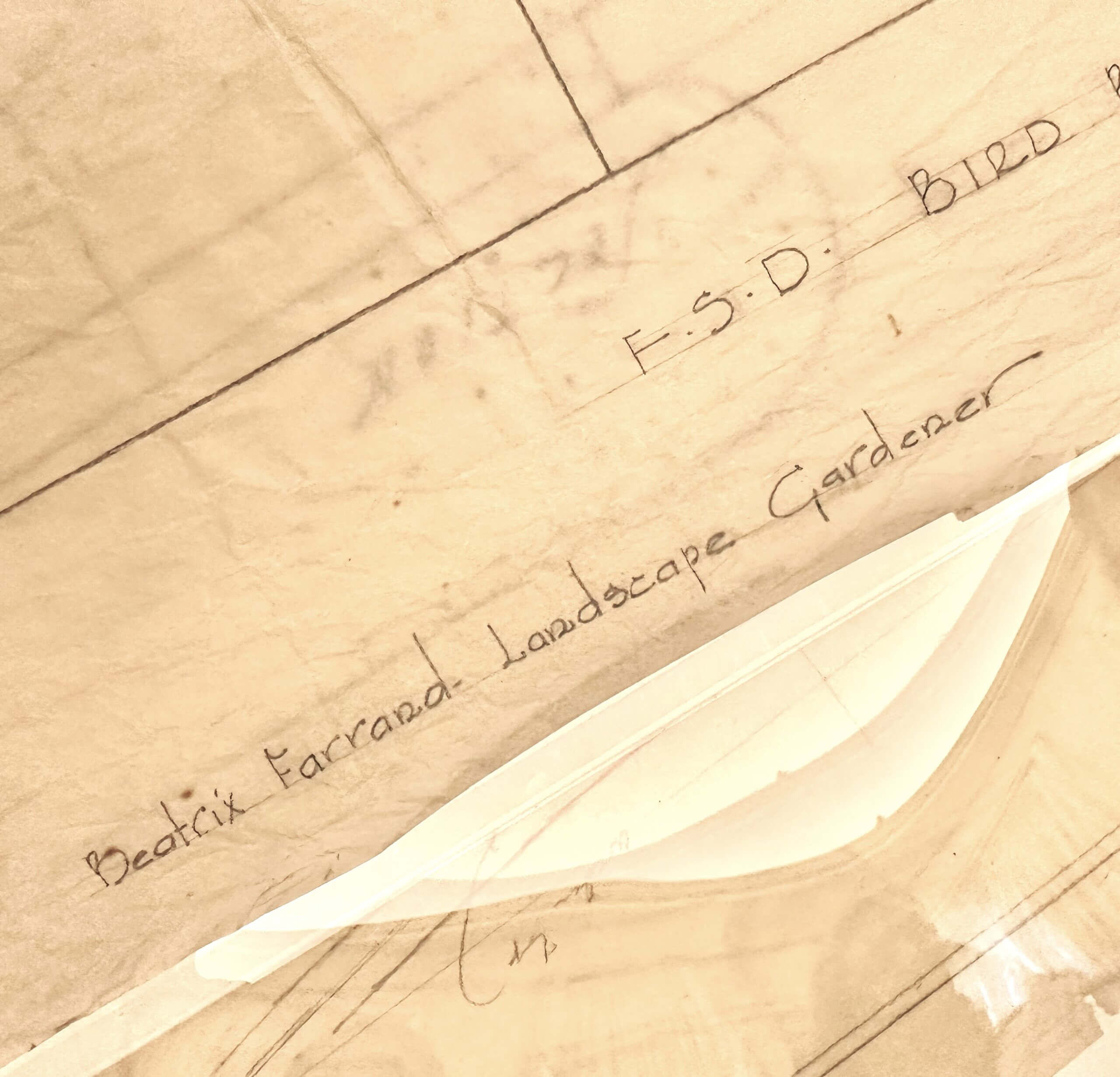
hello@practicelandscape.com
